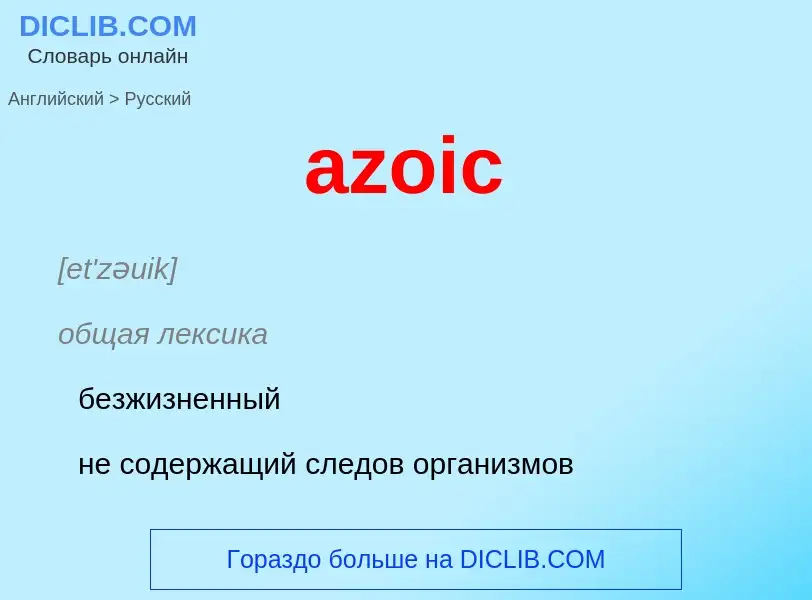Traduzione e analisi delle parole tramite l'intelligenza artificiale ChatGPT
In questa pagina puoi ottenere un'analisi dettagliata di una parola o frase, prodotta utilizzando la migliore tecnologia di intelligenza artificiale fino ad oggi:
- come viene usata la parola
- frequenza di utilizzo
- è usato più spesso nel discorso orale o scritto
- opzioni di traduzione delle parole
- esempi di utilizzo (varie frasi con traduzione)
- etimologia
azoic - traduzione in Inglese
[et'zəuik]
общая лексика
безжизненный
не содержащий следов организмов
геология
азойский (относящийся к среде, лишенной следов жизни)
химия
азоидный
прилагательное
общая лексика
не содержащий органических остатков
безжизненный
геология
азойский
Смотрите также
медицина
бензидин
Definizione
Wikipedia
Azoic Age, Azoic Era, Azoic Period and Azoic Eon were terms used before 1950 to describe the age of rocks formed before the appearance of life in the geologic sequence. The word "Azoic" is derived from the Greek a- meaning without and zoön meaning animal (or living being), it was first used to mean without death.
Azoic was used as early as 1846 by a geologist named Adams, and gradually replaced the earlier term Primitive. Due to the controversy over evolution, "Azoic" was replaced, by 1900, in most usages by the term "Archaean" or "Archaeozoic The Archaean was later subdivided into the Archaean and the even earlier Hadean. Many of the rocks that had originally been thought to be of Azoic time were reclassified as Archaean, but the period itself is now essentially the Hadean.
J.D. Dana in 1863, said that the Azoic "stands as the first [age] in geologic history, whether science can point out unquestionably the rocks of that age or not." He went on to say that when fossils had been found in strata which had previously been classified as Azoic, the boundary was simply moved lower. "Such changes are part of the progress of the science."


![The popular dye [[congo red]] is derived from benzidine. The popular dye [[congo red]] is derived from benzidine.](https://commons.wikimedia.org/wiki/Special:FilePath/Congo-red-2D-skeletal.png?width=200)
